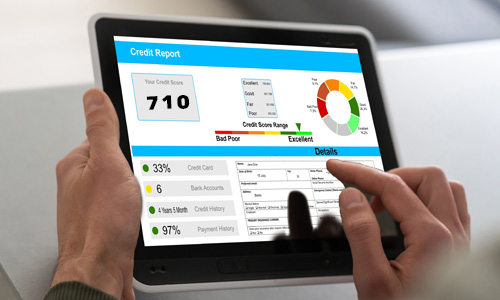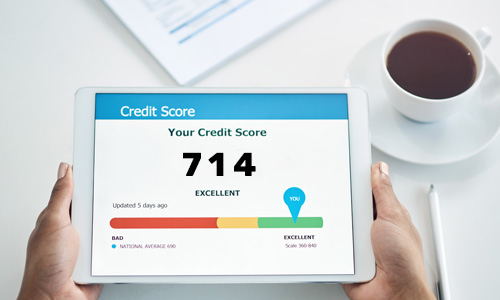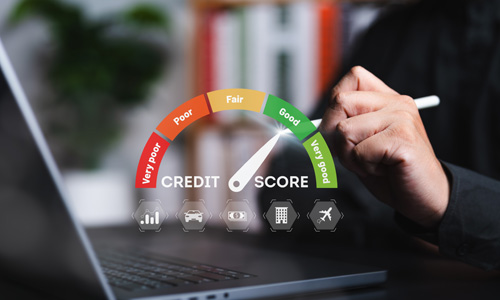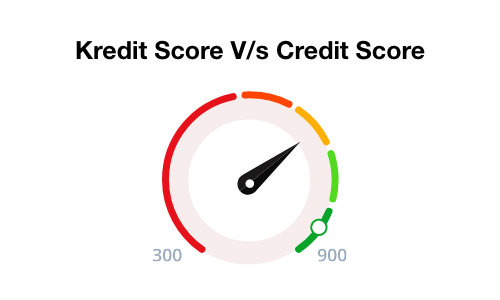Mistakes That Can Negatively Impact your AECB score
Credit reporting was launched by the Al Etihad Credit Bureau (AECB) a few years ago. To calculate a credit score, the bureau analyses all the relevant information regarding an applicant’s financial history. Credit scores range between 300 and 900, with 300 being the lowest and the latter being the highest.
Generally, credit scores are viewed in direct association with your status as a borrower, i.e., you will be considered a riskier applicant by a financial provider if you have a low credit score and vice versa. Credit score impacts the decisions of banks on whether your loan or credit card application should be approved or rejected to a great extent. While introduced only in 2014, credit reporting has quickly become a crucial factor of consideration for most institutions in the UAE.
Consequently, it is essential to keep track of your finances so that your credit report does not suffer. Well discuss credit reporting, credit scoring, and the factors that impact a credit score in the article below.
What Role Does Credit Score Play?
Credit scores impact the chances of approval of an individual’s application for a loan, credit card, and other financial products. Using a credit score, a lender can learn about a customer's debt repayment history, associated risk, and their default history. Depending on the credit score, the lending institution then issues a loan or a credit card.
A noteworthy aspect here is that loan approvals and processing are faster for customers with a higher credit score compared to those with a lower score. Moreover, a better credit score can also ensure easy access to better terms and conditions with a particular plan.
| Check your AECB Credit Score in UAE |
How Do Credit Scores and Reports Work?
Besides listing your liabilities and highlighting any missed payments, a credit report also provides an indication of your risk as a debtor. Maxing out a credit card, failing with repayments, or having your cheques bounce can negatively impact credit score.
AECB obtains data regarding your financial obligations from your bank. All details related to your credit cards, loans, payment history, and more are noted and factored in the analysis of your score. In other words, if you regularly fail to pay off loans or keep exhausting your credit card limit, that information will also be included (and potentially impact your score).
One key factor here is that AECB will also collect data from non-financial firms to examine your punctuality regarding other obligations. For instance, your telecom provider can provide data about late bill payments, while other businesses that require regular payments may provide valuable insights as well.
Mistakes that Can hurt your Credit Score
Several factors contribute to your credit scores such as timely or delayed payments, a mix of credit cards and loans, the number of credit score enquiries, and more.
To improve your credit score in UAE, you can simply acquaint yourself with the factors that affect your credit score and take the necessary steps.
Late Bill Payment
Among the biggest determinants of your credit score, payment history makes up for up to 35 percent of the constitution of your credit score. Your credit history can indicate whether you can be trusted to repay your bills in the future. In this case, late repayment can considerably bring down your credit score.
Notably, the time of the delayed payment also increases or decreases the impact of the delay on your credit score. For instance, an individual who recently missed a major payment is generally considered less risky than someone who missed a credit card payment a couple of years ago.
Thus, avoiding late payments is the easiest way to enhance your credit score. Here are a few tips for the same:
- You can create a paper filing system or a digital filing system to keep track of monthly expenses
- By setting up due-date alerts, you can stay alert regarding the due dates for paying your bill
- You can opt for automatic bill payments and have them completed without any effort on due dates
Multiple Credit Applications
Multiple applications for a credit card or a loan can have a negative impact on your credit report. Each application, whether resulting in approval or rejection, is factored in the formation of your credit score. So even if you require them urgently, applying for multiple loans or credit cards can have the opposite effect and lead to a reduction in your credit score.
Thus, if your application for credit gets rejected, it is highly recommended to wait for some time before applying for a new credit offer.
Improper Bill Repayment
While making payments on credit card bills, a provision of 5% is permissible in terms of the total amount. However, regularly making repayments just near the provision amount can negatively impact your credit score.
Paying off credit card bills in full is always a good way to improve bad credit score mistakes. And even if you are unable to pay the complete amount, you can strive to clear out a substantial portion of your dues every month, as this can reduce your debt burden ratio and help improve your credit score.
You can also go for debt consolidation as you will be able to pay off your debt with just one payment. Moreover, if you are able to consolidate your loans at an overall lower rate, you will also be making significant savings.
Multiple Credit Cards
While there is no direct correlation between credit card scores and the number of credit cards owned by you, having multiple credit cards can have a detrimental effect on your credit scores.
Managing multiple credit cards can prove challenging due to the vast number of considerations involved. Consequently, the probability of missing out on a repayment is higher in such cases compared to those involving only one credit card.
It is advisable to avail of multiple credit cards only if required, and to ensure accurate management of each card in case you possess multiple ones to maintain your credit score.
Credit Card Closure
As you move through life, it is natural to close old credit cards. However, improper closure of the cards is a major factor that impacts your credit score.
Financial management of credit cards over a prolonged period demonstrates your capability to manage a credit card for a considerable duration. So if you have a card that has been in function for a long time, having it managed properly can ensure a positive impact on your credit score.
How Long Does it Take to Improve Your Credit Score?
As a general rule, improving your credit score can take considerable time as all your financial history is considered in the assessment, Nevertheless, the rate of improvement of your credit score depends on the steps taken.
For instance, if you pay off all your outstanding balances, your score may rise drastically. On the other hand, if your credit score is low due to poor payment history, it may take several months to improve your credit score.
Key Takeaway
As credit reports are required by all banks in the UAE to process an application for a loan, credit card, or any other financial instrument, improving your credit score is essential to get approvals and better conditions for your plan. Simply follow the steps discussed in the article to improve your credit score and try to be punctual in all bill payments to avoid any drops in the score.
Credit Score for different types of Loan |
||
|---|---|---|
| Credit Score for Personal Loan | Credit Score for House Loan | Credit Score for Car Loan |

More From Credit Score
- Recent Articles
- Popular Articles












